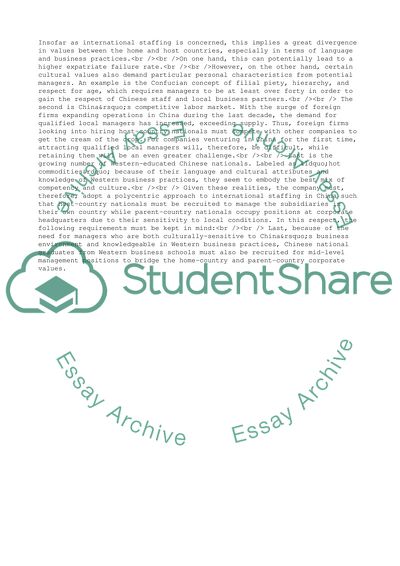Cite this document
(International Staffing Policy Essay Example | Topics and Well Written Essays - 1940 words, n.d.)
International Staffing Policy Essay Example | Topics and Well Written Essays - 1940 words. Retrieved from https://studentshare.org/business/1538566-presentation-and-presentation-report
International Staffing Policy Essay Example | Topics and Well Written Essays - 1940 words. Retrieved from https://studentshare.org/business/1538566-presentation-and-presentation-report
(International Staffing Policy Essay Example | Topics and Well Written Essays - 1940 Words)
International Staffing Policy Essay Example | Topics and Well Written Essays - 1940 Words. https://studentshare.org/business/1538566-presentation-and-presentation-report.
International Staffing Policy Essay Example | Topics and Well Written Essays - 1940 Words. https://studentshare.org/business/1538566-presentation-and-presentation-report.
“International Staffing Policy Essay Example | Topics and Well Written Essays - 1940 Words”, n.d. https://studentshare.org/business/1538566-presentation-and-presentation-report.


